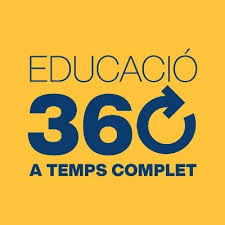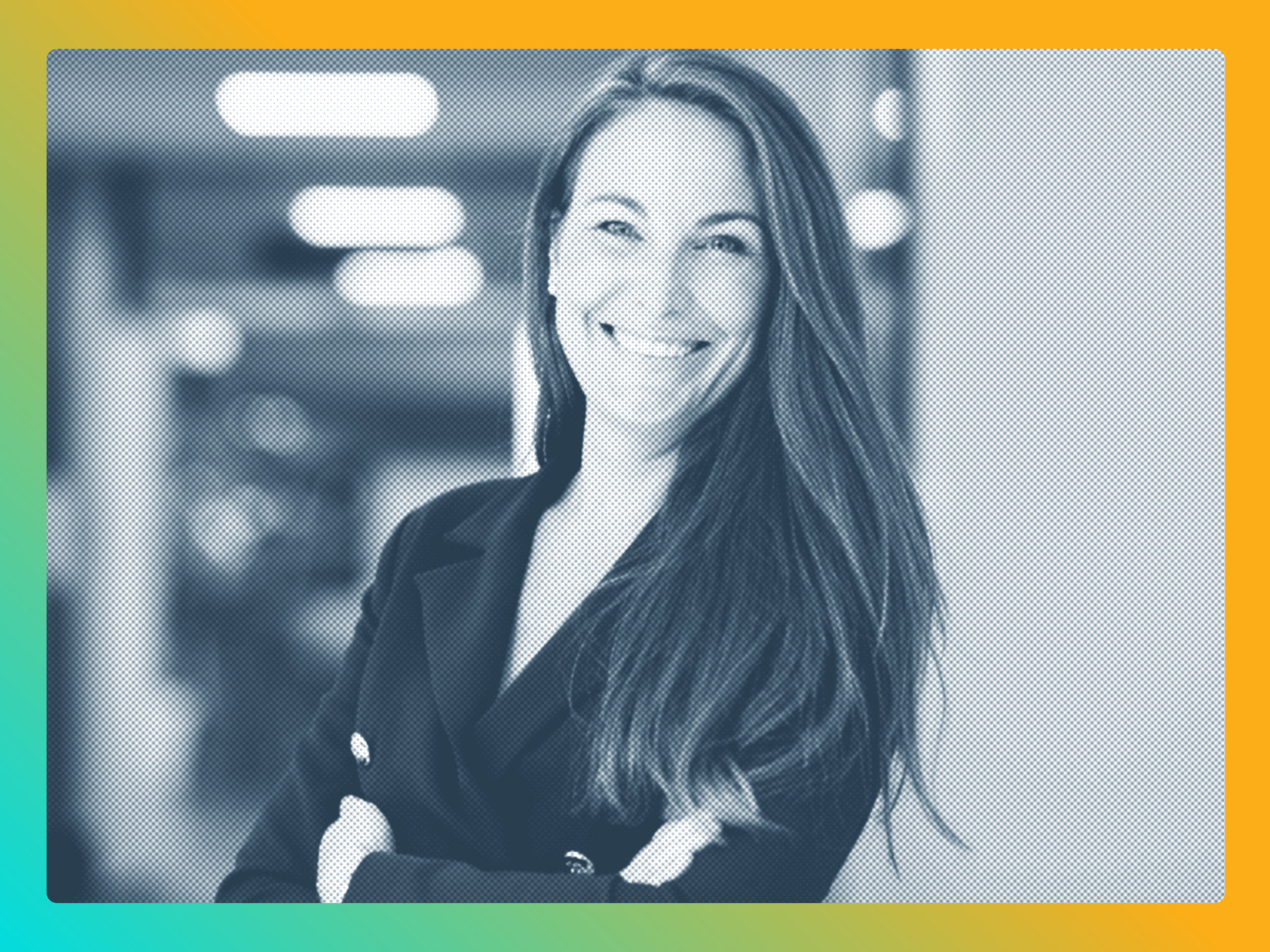Who are you, and what are you doing?
I’m Daniel Persky. I have been working on projects that bridge the global divide, because my mother’s family lives in the Philippines. There, I witnessed inequality in education, training, job opportunities and economic empowerment as well as increasing frequency and magnitude of climate change’s extreme weather patterns like wildfires, cyclones, floods, and rising sea levels. As a result, I founded The Equality Collective, RiseHire, and SkyScouts.
What have you rebelled against in the past, and what are you rebelling against today?
SkyScouts has been my ongoing rebellion for climate equity. My younger brother Matthew and I created a low-cost wildfire prediction and detection system that helps mitigate wildfires and their climate impact, especially in the Global South. I have also rebelled against inequality by founding The Equality Collective nonprofit while I was in middle school. We distribute educational, personal care, clothes, and other resources to underserved communities on 6 continents. RiseHire is my latest rebellion against inequality in the global talent development and job market. To advance equitable economic empowerment for everyone, we provide youth education and connect employers with youth for jobs globally. We promote equal opportunities by training youth with practical skills and connecting employers in more developed countries with the vast untapped pool of brilliant youth from less developed countries for remote jobs.
What motivated you to attend the ECOSOC Youth Forum 2024?
Like many other families in the Philippines, my mother’s family members experience inequality daily in opportunities, income, and education. Similarly, I have family friends living in Africa (e.g. Burundi, Rwanda, Mozambique, Tanzania, and Kenya) who face similar challenges. For example, my cousin Althea Sanchez in the Philippines is an amazing social media marketer and video editor for overseas brands, but is paid a fraction of what she could earn if she were in the US. After interviewing more youth in Africa and Southeast Asia, we realize that this is a much larger issue. We have a friend from Kenya studying at a US university. He told us that his friends in Kenya begged him to make them US accounts on remote job websites, so they can be paid higher wages, highlighting the inequality in opportunity and income. My family friend and social enterprise teammate Laurent Irakarama is ranked in the top 1 percent of software engineering students in Rwanda. He and our other family friends in Africa do not have access to as many job opportunities as US workers despite having similar technical skills. He was invited to the US to present our social enterprise that eventually won 2nd place out of almost 10,000 participants at a well-known international competition, but his US Visa was denied and he couldn’t come to the US. This inequality in opportunity and economic empowerment increased my motivation for building RiseHire to bring education and job opportunities to the Global South. It’s an injustice that people lack access to opportunities and income purely based on where they are born, and not the technical skills they have or how much they are willing to learn and improve. As the most prominent youth conference of the annual UN calendar, the UN ECOSOC Youth Forum 2024 is where I decided to advocate not only for my cousins and friends in the Philippines and Africa, but for youth from every community in the Global South who want their voices heard at the UN. 2 billion young people are projected to enter the workforce by 2030. Youth worldwide want to have equal access to education, training, and practical experience from part-time jobs or internships to develop their skills for the future of work in order to have an equal chance for economic empowerment. We youth are the future, our future, and change starts with us today. This conference has been an excellent place to collaborate with other young change makers. Together, we can amplify the collective impact of our initiatives, much more than what we could achieve alone.
Can you describe the ECOSOC plenary sessions?
The plenary sessions were focused on war, inequality, oppression, and other challenges and issues affecting youth. Representing countries worldwide, the speakers raised awareness for the pressing issues affecting their communities. My key takeaways are: 1) Authenticity: youth speakers are frank, upfront, and real. This raw power and emotion are what motivate me to act. I’m hopeful that this authenticity will help move the needle in multilateral negotiations and influence many people when youth speakers become future world leaders. 2) Empathy: everyone described problems that affected them and their communities, but we all empathized with each other’s struggles, supported one another, and discussed ways to help. 3) Transformation of passion into vision and action: we are all passionate about improving our world. Each of us has developed a vision for our meaningful youth-led initiatives and has taken action on the causes we care most about. 4. Collaborative community: at ECOSOC, I’m certain that every youth found others who are interested in advancing the same UN SDG. I met other delegates who are passionate about education and empowerment and we have been discussing ways to collaborate and amplify our impact.
Could you provide insights into the ‘Learning for Global Citizenship’ session with the Ban Ki Moon Foundation, Global Schools program, and KidsforSDGs?
The best aspects of the “Learning for Global Citizenship” event are the inclusivity and diversity. There were lively conversations, vibrant exchanges of ideas, engaging discussions of solutions, which are different from the formal speeches in plenary sessions from designated speakers on the floor. I was grateful and honored to be invited to present a learning program I developed under UNESCO/Learning Planet’s Planetizen Design Challenge to the attendees. More info here: https://equalityglobal.org/planetizenprogram/ This event was remarkable because we could each freely share our opinions and engage in meaningful conversations with diverse attendees from different countries and backgrounds, instead of merely listening to speeches. Each of us had unique perspectives to contribute to the group. The event organizers are truly committed to inclusivity and diversity by making sure youth voices are heard and taken into consideration. I look forward to continuing my engagement and collaboration with these organizations to realize the change I wish to see.
Were you able to address recommendations for learning programmes on global citizenship? What were they? Why?
I recommended to Ban Ki-moon Foundation officials that when they are looking for youth leaders, they should keep the 80/20 Pareto principle in mind. In essence, they should find a core group of youth leaders (the 20%) which will motivate and push the 80% for maximum efficiency and impact.
Did you have the chance to interact with a diverse group of people? What did you take away from those interactions?
Throughout the ECOSOC Youth Forum, I talked with people from every continent, except Antarctica. Remarkably. Although we live on different continents, we have more similarities than differences. Many of us shared common experiences. I also was fascinated to learn from others about their vastly different cultural upbringing. I met Babacar Diop from Senegal. He treated me like an adult, not the youngest person at the event. He showed genuine interest and asked me, “How do you like New York?” He was so down to earth and didn’t talk much about himself. Later on, I was surprised to find out that he is the Special Adviser on Youth Policies and Development of the Senegal Government, Chairman of the African Leaders Factory Initiative, and the Youth Delegate of Senegal at the UN. I also met Qais Khan from the UK. He was charismatic, outgoing and down to earth, but later, I found out he was a well known public speaker and disability rights activist with his own podcast. Ly Tran from Washington D.C. also talked with me like an adult. Later on, I discovered that after graduating from a university in Ho Chi Minh City in Vietnam, she is now a Community Engagement Exchange Program Fellow at the U.S. Department of State, working at the University of Maryland SAFE Center for Human Trafficking Survivors to research and build human trafficking prevention programs for young women and girls. I could go on and on about the wonderful people that I have made meaningful connections with during the ECOSOC. In my past experiences at other non-UN events, some people seemed to want to impress and network with people who are older and seem “important” to derive some benefit for their careers. But here at ECOSOC Youth Forum, Babacar, Qais, and Ly all took the time to get to know me when I’m most likely the youngest person at the event.. I found that refreshing. These interactions with such a diverse group shaped me as a global citizen. I see our world through different lenses. I have developed even more empathy by listening firsthand to my peers’ challenges from around the world. I became more encouraged by these discussions with passionate change makers that we can band together and make a difference by advocating and fighting for the causes we care about. We have a strong community where we continue to inspire, motivate, and spur each other on even when we face challenges, because we know we are not alone in fighting for our common goal for a sustainable future.
If you had to pick one word to describe your experience at ECOSOC, what would it be, and why?
The gathering of many young leaders globally at ECOSOC Youth Forum inspired me with hope for the maximum impact our powerful generation can make. The one word that describes ECOSOC is “empowering.” I feel that each one of us feels empowered to collaborate with each other toward our common goals for a sustainable future. After receiving positive feedback and enthusiasm for RiseHire at ECOSOC, I personally feel empowered to build my platform to empower more youth worldwide to contribute to their communities with their talents and ideas. Youth entrepreneurs can start businesses that create local jobs. Empowered youth with hope of a better future make communities more cohesive because they don’t need to leave their communities to pursue better education and job opportunities. Youth’s equitable economic empowerment helps communities prosper and grow their local economies that ultimately contribute to the global economy. Today’s empowered youth grow to become tomorrow’s government officials, policy makers and world leaders. I have made hundreds of new connections at ECOSOC and exchanged contact info. After we returned home, we’ve been having ongoing discussions to share how we can support and amplify each other’s initiatives and causes. RiseHire serves youth worldwide and it is important for me to hear direct feedback from potential community members to improve the service and product to maximize the benefit for as many people as possible. I’ve shared grant opportunities (USD 5,000-10,000) with my connections in Africa, Latin America, and Asia (specifically Argentina, Nigeria, Pakistan, Sierra Leone, and Zambia) to fund youth-led initiatives that address “Climate Justice, Health, and Gender Equity while lifting up the intersections of racial equity, disability justice and youth leadership.” I’ve also shared youth empowerment, capacity building, advocacy and leadership opportunities with my connections. This supportive ECOSOC community helps all of us accelerate the progress of UN SDGs.
Do you believe youth voices were genuinely heard and valued at ECOSOC? In what ways? If not, why and what could be done to improve the current situation?
I think that youth voices were genuinely heard at ECOSOC. Youth of diverse cultures and ages were well represented. High school students like myself, college age students, and post-graduate professionals all gathered in NYC for EYF24 from every corner of the world. However, mainly older youth (i.e. over the age of 25) were heard on the floor of the UN. High school students and college students didn’t get much of a chance to speak or be heard. I understand that older youth have more experience, yet intergenerational perspectives are equally important in decision- and policy-making processes to merge knowledge and experience with innovative ideas for novel solutions. We are grateful for side events where younger youth were included in more of the conversations. To include more youth voices, below are some suggestions: Set up microphones in the balcony so youth can participate and ask / respond to questions and meaningfully engage. Gather in larger rooms that include all attendees, so that some delegates are not relegated to the overflow room watching proceedings on a screen. Arrange for longer sessions to allow for more than 2 minutes of interventions / speeches and more Q&A and discussions. Harness the use of technology to elevate voices of those who couldn’t attend in person due to visa issues, travel costs or school schedules (e.g. through virtual events or live streams with real time interactive participation). Plan for EYF to occur over the weekend if possible. Many delegates are students. They flew in from overseas on long flights. It is a challenge for them to miss school but if the conference is over the weekend, they’d miss fewer days of school and more youth could participate. Or, if EYF starts on a Monday or ends on a Friday, students can fly in on a Sunday or fly out on a Saturday. This year’s EYF started on Tuesday and ended on Thursday, so many of us students had to miss school on Monday to fly to NYC and fly out Thursday night on a red eye flight and go to school on Friday. If we could utilize the weekend to travel, that would help students not to miss too much of school. Extend the length of the conference so there are more speakers and interactive discussions. There are 10-20 side events at the same time, so that it was hard to choose which ones to attend. 3 days seemed so short and I wish EYF could be longer. But I understand that the length and dates of EYF may not be changed due to coordination and scheduling of many other events at the UN.
Did you feel supported in your involvement? From whom did you receive the most support?
Yes, I definitely feel supported in my involvement. Before ECOSOC, I felt nervous being one of the youngest delegates to attend, at 15 years old. But once I felt the welcoming environment at the UN, I adapted very quickly and was in my element right away. By inviting delegates to participate for the first time at age 15, ECOSOC demonstrated the commitment to bring younger voices into intergenerational dialogue. I’m grateful to be part of the first movement of teenagers to participate at the ECOSOC Youth Forum. Hopefully one day soon, more of our younger voices will be heard on the main floor. I feel I got the most support from the Learning Planet team which is very experienced in navigating events like these and helped shepherd the new attendees. The Learning Planet WhatsApp group chat was helpful for new attendees. I had already been on Learning Planet calls with Ed and the other Youth Fellows so when I met them for the first time in person at the UNITAR building, I felt like I had already known them as friends. Ed was very friendly and reassuring and helped everyone out with their passes and later walked with us to pick up our Learning Planet shirts, which we all appreciated. The Learning Planet Youth Fellows and I supported each other along the way, as some of us attended our first UN event together at ECOSOC Youth Forum. We helped each other navigate where to go and what to do and attended events together. It was actually a great bonding experience for us. I value the friendships that started at EYF24 and we plan to stay in touch even though we live on different continents.
After your experience at ECOSOC, what emotions are you left with? Do you still have hope?
I feel grateful for the invitation to the ECOSOC Youth Forum. I feel hopeful, energized, empowered, and even more driven than before to make a change in our world. I met so many passionate and motivated change makers and visionaries of all ages and backgrounds. We are united by our common dream for a better future. I feel a strong sense of interconnectedness and solidarity with the ECOSOC delegates even after we all returned to our home countries because we are still in touch daily. Based on our conversations, I know there are synergies within our community of global citizens for actionable impact. I have a lot of hope for our future because of how much impact we’ve been able to make on our own. Now that we’ve connected and joined forces, we can multiply the scale of each other’s initiatives and bring our projects to a global level to benefit as many people as possible. Leveraging the potential, creativity, and energy of youth, we will co-create an equitable and sustainable future.
Learn more about Daniel’s project as part of the # Planetizen University Design Challenge here and
discover all the projects on this page.



